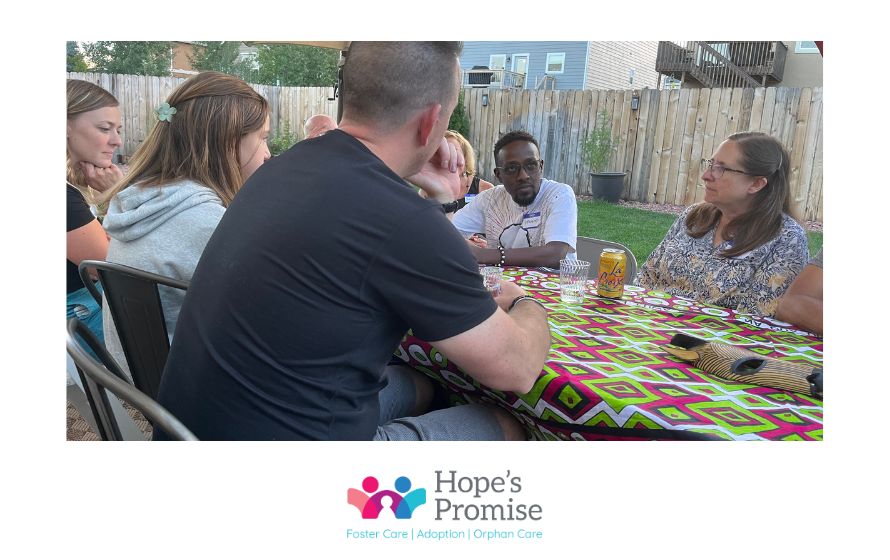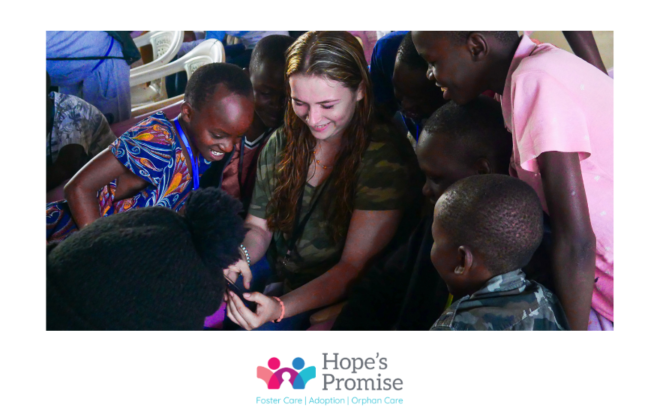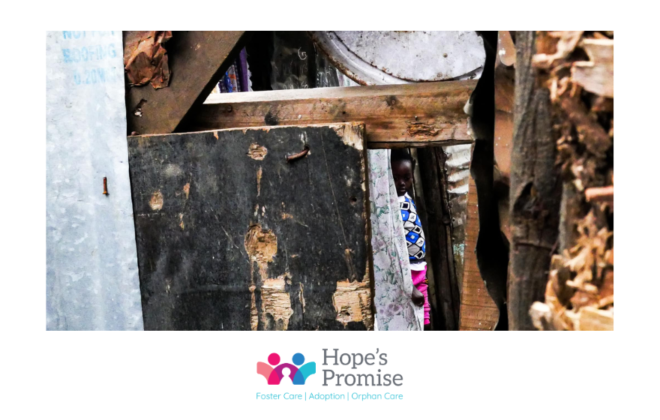Give to Potential
When Steve Kariithi and other Hope’s Promise staff visited Grace Anglican, a church partner in Sheridan, WY, they connected with Crystal Merriam, church member and founder of a nonprofit called Lagniappe. Crystal recalls her conversation with Steve about how to really bring about change for people trapped in poverty and how it intersected with her ministry vision.
I recently spent the afternoon with a Kenyan pastor who helps orphans to live in family-based care instead of orphanages. Pastor Steve said charities are attracted to Nairobi’s slums because of the high need. However, he lamented the attitude with which help is sometimes given. He said, “Some organizations give to problems. Others give to potential. They may both provide food, but when you give to potential…that’s when there is impact.” I couldn’t even really figure out how this inspiring leader came to be watching my gas-lit outdoor fireplace alongside me, and certainly didn’t anticipate similarities between Pastor Steve’s work and my job skills ministry in rural Wyoming, so it was encouraging to hear, “You’re investing into potential. When you give to potential, you see change.”
And we are seeing change.
One year ago, today, Sean started his benefitted, full-time job at Big Horn Airways. When he applied at Lagniappe, he had worked at four different employers in the previous twelve months.
No one from Lagniappe is telling Sean what to do or how to do it. More than fixing any “problem” Sean had, we invested into his potential. Like everyone, Sean did and will continue to have problems, but he also has a ton of potential.
This is the beautiful part about being situated as a ministry grounded in Jesus’ own ministry. Jesus was not ignorant about problems, but knowing and honoring the individuals he encountered always took priority. He knew their handicaps, racial background, medical issues, and religious hangups, but he used all those things that initially presented as worrisome limits as opportunities to honor individuals’ personhood, ignite transformation as they joined Him in more intimate relationship, and invite them into a larger community of healing people who are trusting Jesus.
The people with the fewest “problems” had the least potential for transformation, even though they desperately needed it. Being self-important, impatient, status-obsessed, or even cruel didn’t carry the same consequences or stigma as being poor or blind.
We’re not primarily dispensing skills, knowledge, and payroll. We’re inviting people into an opportunity for transformative, vocational community.
Currently, we’re interviewing applicants and checking references. Hopefully, our next trainee will be selected and hired within 2-3 weeks. We’re not examining whose problems we hope to fix…we’re getting excited about all the potential we see!
There will be more limits and more problems for us all. Always. However, as we heal alongside Christ and each other, His light, hope, and love prevails.




